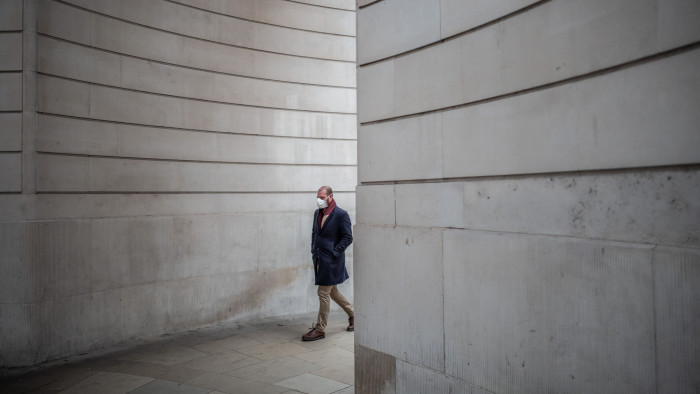Lawyers face anxious mix of opportunity and loss

Roula Khalaf, Editor of the FT, selects her favourite stories in this weekly newsletter.
As lockdown stretched into mid-May, Charlie Jacobs, senior partner and chairman of Linklaters, recalls that it felt like the “rain had set in” after a “crazy period” when about 5,200 staff across 20 countries started to work from home.
In his video update to staff, he shared that he was experiencing a dip in spirits, but also some strategies for coping.
“I thought, I can’t change the news but can do some small things. So I got a haircut from one of my four children — it was not very good,” he laughs. “I did a spring clean of my desk and also took a day’s leave.” He stopped overdoing his early morning exercise and ensured he got proper wind-down time in the evening.
His frank message struck a chord with colleagues at the firm. Law is a stressful, results-driven and competitive profession, and his message was an acknowledgment that many lawyers have seen their resilience and mental health tested during the pandemic.
There is also growing recognition that even after lockdown fades, lasting changes — from flexible working to lost jobs — will emerge.
Elizabeth Rimmer, chief executive of LawCare, a UK legal mental health charity, says that about 42 per cent of calls to its helpline from mid-March to mid-June had a coronavirus element. Worries were based on problems including childcare, family members with Covid-19 and job security.
About 17 per cent of calls were from lawyers who were not allowed to work from home, while for some, the stresses of the pandemic had worsened existing mental health problems.
“Many of those calling us do not have support in place from their firms,” says Ms Rimmer. Generally, however, “the larger firms have been more flexible and adapted well and enabled people to work from home”.
“At the beginning we had calls from people put under pressure to come in, and now lockdown is easing there is pressure on people to come back,” she says.
The UK government’s furlough scheme — financial support to help employers retain jobs — has also caused anxiety, she says. As well as those simply worried about their jobs in the longer term, “we have had a few people who have been furloughed but are being pressured to work . . . [they] feel they are in a difficult place”.

Linklaters had already set up a programme for staff wellbeing and is a founding member of the City Mental Health Alliance, which promotes positive mental health. Since lockdown started, Linklaters’ support has included calls with working parents, fitness challenges and webinars featuring the firm’s in-house doctor and a consultant psychiatrist.
Victoria Hills, global transactions partner and sponsor for mental health at Freshfields, says the law firm offered webinars hosted by external speakers, with topics ranging from wellbeing to staying positive under pressure. With her own team, she holds a short, virtual “stand and stretch” morning meeting. Freshfields has also held online events to keep staff connected, she says. “We have had quizzes, virtual wine tasting, a murder mystery event on Zoom as well as a charity bake-off.”
Junior lawyers are having a particularly tough time. Even before the pandemic, many were reporting too much work and not enough support. The lockdown has exacerbated that. Many trainees live in shared, cramped flats and are missing out on the ad hoc training and informal mentoring they would receive from senior lawyers in the office.
Ms Rimmer says: “There is a lot of anxiety among junior lawyers about exposing any weaknesses . . . online they have to be more visible about asking for help.”
Will the pandemic help change ingrained working practices?
Law firms are notorious for having an inflexible, “always-on” work culture. But allowing more staff to work from home — even for part of the week — could help retain more women at senior levels, for example.
LawCare’s Elizabeth Rimmer identifies one benefit of the lockdown’s enforcement of remote working: “Companies also have a better understanding of people’s lives and their personal circumstances in a way they would not have known before or even asked about.”
Mr Jacobs says working from home a couple of days a week could change how law firms work and help improve their gender diversity, at least.
But many inside the sector also suggest that strains on the legal profession will continue as the economic impact from the pandemic becomes clearer.
Some sectors are likely to be worse hit than others. Criminal law firms relying on low-margin, legal aid work have been hit hard by the halting of most jury trials since March. Commercial law firms have seen an increase in demand in some areas such as insolvency and restructuring, while others, such as M&A and corporate deals, have slowed.
Ms Rimmer predicts a “grim” period later this year as job losses accelerate. “It’s a big moment for the legal profession,” she says. “Changes are already happening due to the use of artificial intelligence in law firms, and Covid-19 will give further impetus for a genuine change.”

Comments